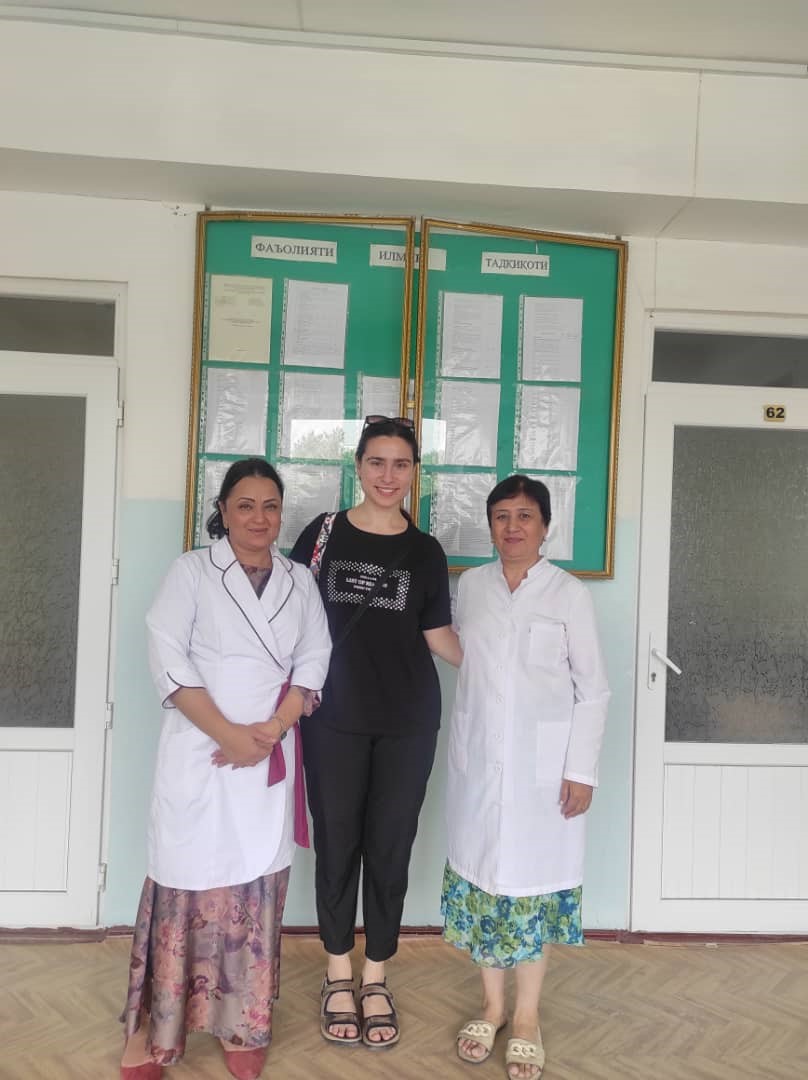
By Megumi Barclay
When Christina White volunteered at the Squirrel Hill Health Center in Pittsburgh, she encountered Afghan refugees in need of medical care and translation help. White, whose mother left Iran before the 1979 revolution, had limited skills in Persian, a language that is widely spoken in Afghanistan. Although she could have minimal communication with the refugees, White came away from the experience determined to improve her fluency to serve the Afghan community more effectively.
Now a third-year medical student at the University of Pittsburgh, she spent the summer studying Persian in Tajikistan, as a recipient of the selective 2024 Critical Language Scholarship (CLS) from the U.S. Department of State. White was one of approximately 500 chosen from more than 5,000 applicants to take part in this immersive summer program aimed at fostering language and cultural fluency in regions the government has identified as vital to national security and economic interests.
The CLS program seeks to increase the number of U.S. citizens proficient in critical foreign languages, including Arabic, Chinese, Russian and Persian. Through eight to 10 weeks of intensive language instruction and cultural enrichment, students like White gain invaluable skills in a country where the target language is widely spoken.
The program gave White a chance to refine her Persian skills while immersing herself in Tajik culture, which she plans to use in her future medical career.
“I applied for this program so I can translate, better understand and communicate with Persian-speaking patients, especially the large Afghan refugee community in Pittsburgh, as well as collaborate with the Middle East in global health efforts,” White said.
During her time in Tajikistan, White immersed herself in the local culture while living with a Tajik host family where she took part in everyday activities, celebrated local holidays, and experienced Tajik traditions firsthand.

One of her most memorable experiences involved a visit to Vahdat, a town about 40 minutes outside the capital, Dushanbe, where thousands of Afghan refugees reside. White and her fellow CLS scholars helped teach English to Afghan women. They eagerly flipped through a brochure she brought promoting Pittsburgh, particularly intrigued by pictures of the Pittsburgh Penguins. The conversations they had about their home and new lives as refugees highlighted the universal human need for health care, education and safety.
In addition to language learning, White sought to explore the Tajik health care system. She had the opportunity to meet with Zuhro Fehriddinova, a senior physician at a multispecialty clinic in Dushanbe. Fehriddinova provided insights into the challenges facing Tajik health care, from low physician pay to difficulties in reaching rural populations. White also spoke with a Tajik medical student about the similarities and differences between medical education in Tajikistan and the United States, fueling her desire to foster global connections in health care.
Beyond the classroom, White worked on developing her medical Persian vocabulary to better serve Persian-speaking patients upon her return to Pittsburgh. “I hope my medical education prepares me to be a doctor who can navigate cultural barriers to provide effective and competent care for people of different backgrounds,” she said.
More information about the CLS program is available here.

photos courtesy of Christina White
